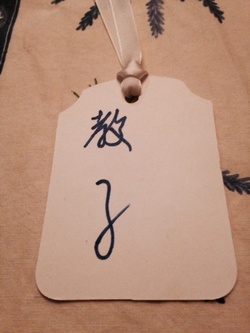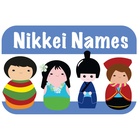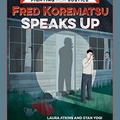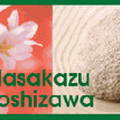By placing my Japanese given name first on my birth certificate, you know my parents were Issei. Technically, my mother was Nisei, but she was schooled in Japan for many years, making her closer to the original culture than most Nisei.
My father died when I was young, but I remember he explained to me that he chose my name carefully and that the kanji (Chinese character) for “Nori” meant “wise teacher.” I know it is an old tradition in Chinese and Japanese culture to select the name based on a parent’s desire and prediction for the future of their newborn child.
My Nisei mom picked the name Eileen. Not a good choice for Japanese speakers like my dad since “l’s” are impossible to pronounce. I doubt that he ever called me Eileen. I grew up as “Nori-chan” and my aunties called me that until the day they died. But it’s probably a good thing to have an “American” name when you start school. No rude questions from teachers and new friends about your “foreign” sounding name. My mom had American dreams for her children so Eileen I became after age 5.
But every child of immigrants grows up with duality. One foot in the old culture and the other in the new. I was no different for many years. That duality is played out in so many ways both good and bad over the years.
The name Kurahashi is and was kinda difficult. You do have to spell it all the time, unless you are in Hawaii, which is why I love Hawaii. And it’s long. Ironically, it’s only two characters in Japanese, of course. The characters mean “kura” for storage house and “hashi” for bridge. I’ve been searching for some poetic meaning in these characters, but haven’t really settled on anything.
Kurahashi is not a common name, even in Japan. I’ve only known two others—one a successful business man from Japan that I met and a Sansei named Marilyn Kurahashi who was well known at USC in the early ’60s as a math whiz. I would sometimes get her phone calls growing up and people often asked me if my father worked for Barker Brothers, the furniture store, cuz her father worked there. We are not related.
I also know that a Kurahashi was among the 47 ronin of Chushingura fame. I have no idea if there is a remote connection between my family and that samurai of old, but it’s fun to imagine so. It’s nice to think of yourself as connected to someone from a legend that has lived so long in the hearts and minds of the Japanese.
For about ten years I took my late ex-husband’s name, Fat. So many people knew me as Eileen K. Fat. But when I graduated from law school in 1975 I switched back to Kurahashi. Tom Fat was a lawyer, too, and there were no lawyers named Kurahashi. So I decided to begin my career as a Kurahashi. My only reluctance was that I would not share the same last name as my daughter. It was awkward for a while, but now it’s fine.
A name is like an old shoe. Something you take for granted, but that you depend on to get you through life.
© 2014 Noriko Eileen Kurahashi






